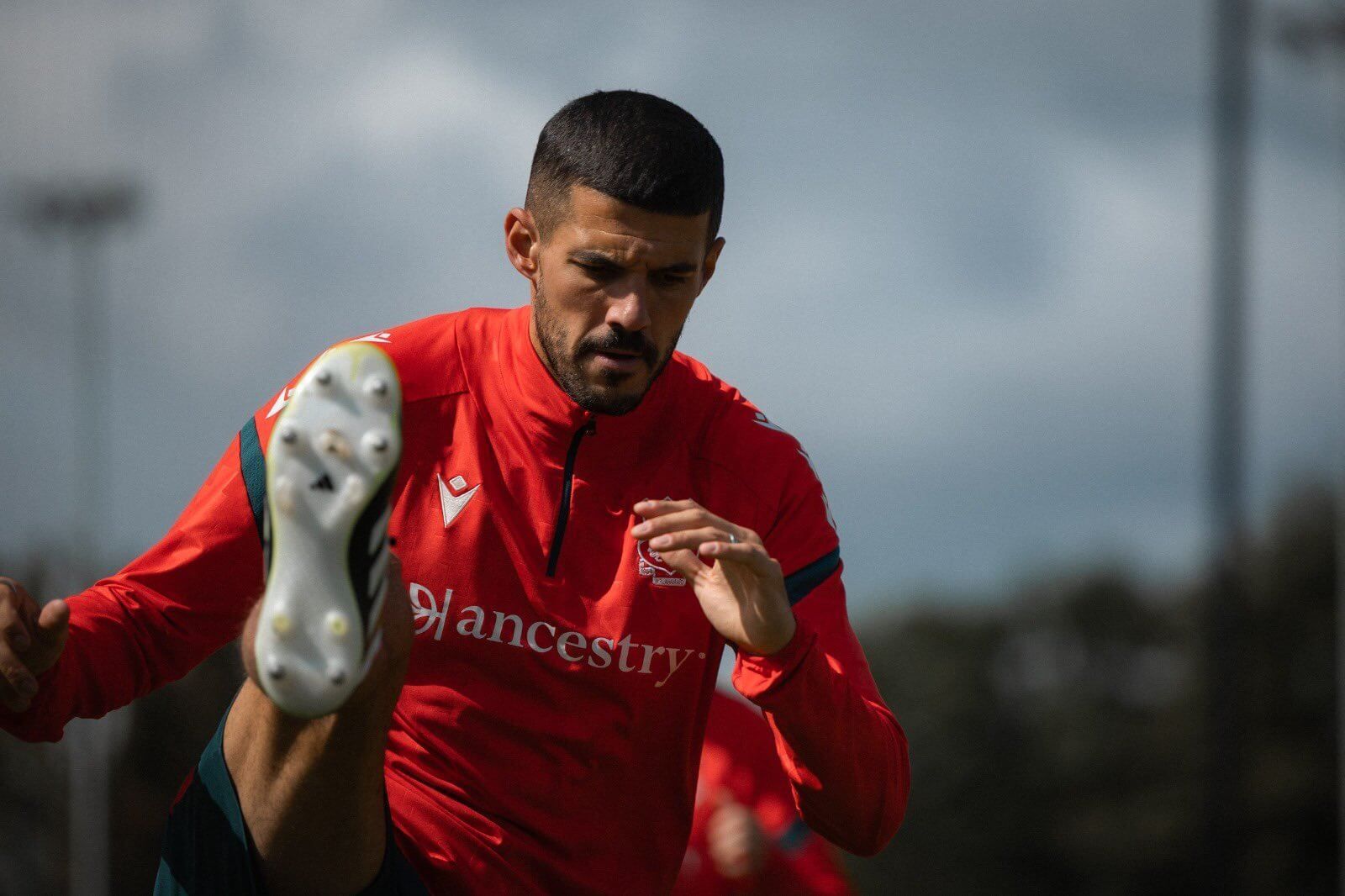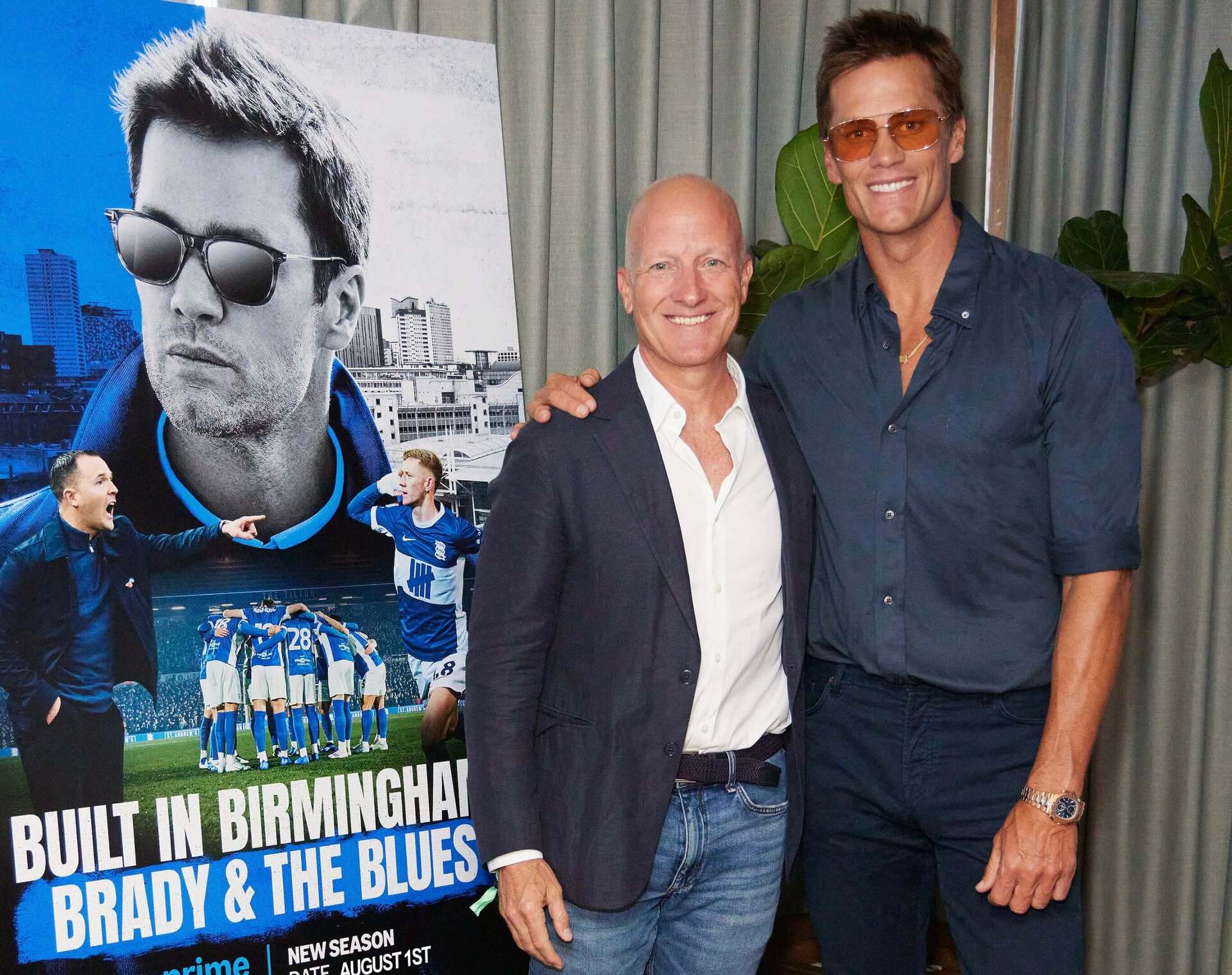Greetings from Yorkshire!
Rory Smith writes: (Technically, as those of you who listened to this week’s podcast will know, those greetings come to you on the way back to Yorkshire, after a few days with sporadic internet connection in France. But Yorkshire is a state of mind; you never truly leave it.)
There are two traditional curtain-raisers to the English football season. One is the Community Shield, the showcase that pits the champions against the FA Cup winners (or sometimes someone else) and occurs (mostly) a few days before the Premier League resumes. The other comes in the week before the Community Shield, when we debate whether it means anything.
This season’s will be a little different. It will, without question, be a powerful and poignant occasion, the first chance on the national stage that Liverpool — and the English game more broadly — can pay tribute to Diogo Jota and his brother, Andre Silva. It will be, I think, a strange moment for Liverpool fans, still in a peculiarly personal period of mourning for someone they largely did not know but truly loved; it will be even more wrenching for the players, who must do this thing that they love, that he loved, in his honor, in his absence, doing it without him while doing it for him. The Community Shield, this year, will certainly mean something.
This week, though, I wanted to touch on another story, a different beginning of a different season: the Championship starts this weekend, and Wrexham are in it.
The Final Step for Wrexham 🐉

The perfect illustration of Conor Coady’s value to a team is this: in 2021, he was selected by Gareth Southgate, then the England manager, as part of his expanded squad for the tournament which — confusingly — everyone was told to refer to exclusively as Euro 2020. England played seven games in that tournament, making it all the way to the final. Coady did not play a single minute.
Still, 18 months later, when the time came to name his squad for the 2022 World Cup — a tournament held in the correct year — Southgate included Coady once again. He chose him ahead of Tyrone Mings and Fikayo Tomori and, most controversially of all, Marc Guéhi, and yet still Coady did not make a single appearance, not even a ceremonial one, as England eased through the group phase.
The phenomenon of the “good tourist” may or may not be unique to British sport, but it is here where it is perhaps most established. It is borrowed from cricket, and to an extent rugby, sports where teams regularly find themselves cloistered together, far from home, for months at a time. (Let’s do the joke: yes, that is for just one cricket match.)
In those circumstances, you need a certain number of players whose qualities off the field are as pronounced as those they display on it: characters who can help a group to gel, play peacemaker when necessary, soothe egos, maintain morale, occasionally guide more combustible elements towards what might gently be called better decisions.
Coady, certainly, fits that bill. I know him a little; we have worked together, a handful of times, on the BBC’s “Monday Night Club.” Coady is smart, thoughtful and inherently cheery. He is reluctant to criticize but frank when he deems it necessary; he tends toward the constructive, rather than the bitter. It does not take long to work out that he would be a good person to have in the febrile atmosphere of a national team squad.
But to reduce him to nothing but what is known, in soccer, as a “good character” is unfair. Southgate admired Coady — relied on him, to an extent — not because he is the most talented player in the world, but because he is relentlessly driven, wholly dedicated, a happily ruthless maintainer of standards. He is a captain, in every sense of the term.
That is why, when it became clear that he would be leaving Leicester City this summer, there was no shortage of teams eager to recruit him. At 32, Coady is perhaps entering the autumn of his career. But he is an invaluable presence, particularly in a young squad: he is a cornerstone sort of a player. That he apparently turned down Rangers in favor of signing for Wrexham, then, is illustrative of the sudden appeal of North Wales.

Coady is not the only high-profile player to have moved to the Stok Cae Ras — the Racecourse, as everyone in Britain will continue to call it — this summer. Kieffer Moore, a striker who always reminds me of the “Futurama” line about Ross, the largest Friend, eating all of the other “Friends,” joined up this week; Lewis O’Brien and Josh Windass, Championship experts, were already in place.
That sort of recruitment, of course, feeds the impression of Wrexham that has taken hold in the last couple of years. English (and also sort of Welsh, in this context) soccer is a sufficiently jealous, tribal place that the fuzzy glow of the Wrexham story has somewhat worn off on this side of the Atlantic; we are bitter enough, wizened enough to know that there was no real romance in their rise through Leagues Two and One, not when their budget was so much more lavish than almost every opponent they faced.
Signing players of the quality, and cost, of Coady, Moore and the rest feels like proof, then, that the club’s connection to Ryan Reynolds and Rob Mac confers some artificial advantage. In ordinary circumstances, a player of Coady’s pedigree would not be taking a chance on a newly-promoted club, one that has not featured at this level of the English league system for 40 years. (This is, by that measure, already the second-most successful period of Wrexham’s long history. Being in the Championship does not place the club back where it belongs; strictly speaking, it represents the height of its historical ambition.)
And yet that is not quite true. In many ways, Wrexham’s adventure in the Championship is a chance to reset the franchise, the first time since the first season under American ownership, arguably, that the club can correctly consider itself an underdog. Wrexham might have access to funds most League One teams cannot hope to match, but costs in the second tier are exponentially higher.
Humphrey Ker, the club’s executive director, has said Wrexham would need to quadruple its salary costs just to “have a chance” of remaining in the division; aiming for promotion would require something far greater still. Sheffield United and Coventry, for example, spent almost $25 million in the transfer market last summer and still did not get promoted.
And yet that does not quite tell the whole story, because while there is no question that Coady and Moore and the others have been drawn to Wrexham because of the club’s economic clout, it is not the only appeal. Wrexham’s superpower, even in the Championship, is in the exposure it can offer.
Coady — as his media work suggests — is savvy enough to be thinking about what comes next. Featuring in a season or two of “Welcome to Wrexham,” winning the hearts and minds of a devoted global audience, is hardly a drawback. That is an enormously valuable selling point, one no other club can match, even with Birmingham City’s move into documentary-making.
There will still be those who regard that as an artificial helping hand, who look at Wrexham and see something that is both uplifting and somehow ersatz, a historic and beloved football team that has been coopted for another purpose.
That interpretation feels a little mean, in truth. Soccer is used for many nefarious things. Creating a heartwarming documentary should really be the least of the sport’s worries. And besides, if the signing of Coady is anything to go by, the club is at least spending all of that Hollywood money well. Well enough, in fact, that there is at least a slim chance that they may not be visiting the Championship for long.
Introducing The Correspondent Newsletter 📧
At some point, we all have to grow up. So starting next week, this newsletter — which has lived in the warm, maternal embrace of The Raven this summer — is moving into a place of its own. Thanks to the good people at Men In Blazers, it will have its own feed as The Correspondent, which makes it sound a bit like a Jason Statham movie. But one of the good ones.
It would be great if you felt like you wanted to sign up here to keep track of my thoughts on the Premier League, the Champions League, and pretty much anything else from across the world of soccer that catches my eye. There will also be travel tips, restaurant recommendations, and probably at least some, but not too much, discussion of Terry’s Chocolate Oranges.
It would be wonderful to have you come along with me for the ride. And if you know anyone else who might be interested, then please feel free to share this link with them. Everyone loves being given a link.
Fresh Meat in the Championship 📈

There was a statistic, last season, that was repeated so often that many Premier League fans may have found themselves muttering it in their sleep, or idly mentioning it in meetings, or including it in their wedding vows. For the second season in succession, the three teams relegated from the top flight were the three who had been promoted the year before: something that had never previously happened in English football.
This, it was widely and accurately decided, was bad for the Premier League; it gave it the air of a closed shop, seemed to douse the jeopardy that can make the bottom of the table as compelling to follow as the top. But the consequences have, if anything, been even more severe for the Championship, which has made a habit in recent years of sending the same few teams back to the Premier League: Sheffield United, Burnley and Leeds have all been promoted more than once in the last five years; as a rule, the teams that have just come down are now incredibly likely to finish in the division’s top six. A league that has long sold itself on its intense, inherent competitiveness has started to feel just a little preordained.
That is not quite the case this year. Ipswich might have retained Kieran McKenna, it’s well-regarded manager, and therefore look a decent bet to return at the first attempt, but both Leicester and Southampton dropped down looking like they need major restoration work.
That should mean opportunities for others: Coventry under Frank Lampard, having come close last year; Middlesbrough, under Rob Edwards, the man who brought Luton to the promised land; Birmingham City, on a charge thanks to the inspiration of Tom Brady and (maybe more importantly) the financial largesse of Tom Wagner. Wrexham will have a chance, too. And, of course, Sheffield United, beaten in the playoff final last season, because sometimes you have to play the hits.
What Else I’ve Been Writing ✍️
Jack Grealish, Raheem Sterling and the Premier League’s gilded cage.
England now produces young talent in industrial quantities. Its clubs still aren’t sure what to do with them.
Notes from Our Readers 📬
A pleasure to be on the receiving end of a recommendation this week, courtesy of Marcus Geist, who wrote in to suggest I visit — with my children, of course — Les Machines de Lile, a theme park in Nantes which features “a three-story mechanical elephant that sprays water.” I have never met Marcus, but feel he knows my interests well. Sadly, Nantes is a little further than we made it in France, but I’ve added it to my list.
And thanks, too, to Erik Liekoski, who wrote in to share his memory of watching Argentina’s superclásicos at the turn of the century. “There was nothing better than watching any Boca Juniors game,” he wrote. “And listening to the greatest, Norberto Longo: I couldn’t understand a word he said, but he was unmatched. I became a Boca fan for life then. It all fell apart soon after, but those were a couple of glorious seasons to watch from afar. And I can’t undersell how important it was to have access to FOX Español. It was, for a while, the only place to see matches.”
You were better served than we were in Britain — I think there might have been occasional highlights of Argentine games on some flaky satellite channel then, but nothing reliable — and you hit upon a truth that a lot of TV networks and leagues themselves seem to have forgotten: if you screen soccer, from anywhere in the world, then people will probably watch it.
Thanks so much to both for your notes, and please feel free to join them if you have a memory to share, a question to ask, an idea to…posit, maybe? Probably posit. And remember: as of next week, this newsletter takes on a life of its own, as The Correspondent. I’d be really pleased if you signed up — which you can do right here — and also if you told everyone you knew, and made them sign up too.
Have a great weekend,
Rory

